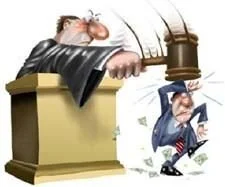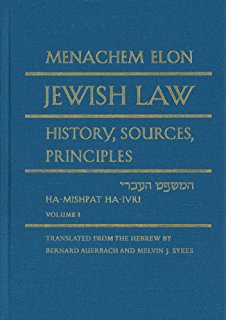S.O.T.R.U. Essay 5: A Yom Hashoah, Doing vs. Talking
“What does God require of you, oh human being? To do/make (לעשות) justice (משפט) …” Micah 6:8
“All action leads to benefit; but mere talk leads only to continued need.” – Proverbs 14:23
“It is not hearers of The Word who will be justified before God, but doers of The Word.”– Romans 2:13
“Prove yourselves doers of The Word, not mere hearers who delude themselves.”– James 1:22
WORDS OF GOOD INTENTION vs. DEEDS OF EFFECTIVE REMEDY
“Never again!” Is chanted throughout the Western world every Yom HaShoah. Speeches are made, solemnities are observed in ceremonies and are posted on Facebook.
Collective hand-wringing in public shows the world the group or individual has rightful compassion for the slaughtered and abused.
Much of this activity is actually the kind of altruism motivated at its bedrock by the need for self-esteem: people prove to themselves and the world within their reach that they are “good” people who deplore atrocities.
Yet – in what I call the “Biblesphere” – the Scripture-embracing population – there is no more neglected value than what God puts first in His own list of what He requires of people to be human(e): Justice.
Not admiration of justice, or hope for justice, or any other purely internal mental or emotional vector regarding justice.
Rather, God’s own list of “bedrock humanity” is לעשות משפט – to do, or make justice.
JUSTICE AS A BOTHER
My own experience in the Biblesphere is that doing of justice is nearly non-existent. And seekers of justice are hated. Literally hated.
They are seen as black holes, sucking all light, energy, and time into themselves, depleting the universe around them.
This exists in the face of clear teaching in Scripture on this point: “‘Because this widow keeps bothering me, I will give her legal protection, lest by continually coming she will wear me out.’ And the Master said, ‘Hear what the unrighteous judge said.’” (Luke 18:3-4)
For a legal authority to treat an unpowered, needy justice-seeker (like a widow) as a “bother” is unrighteous.
Yet – my experience across four decades in the Western faith-realm is that justice-seekers are treated exactly this way. Why?
There are very specific reasons for this situation: and I seek to address and remedy those causes here, in hope of furthering justice on so sacred an occasion as “Yom HaShoah” – Holocaust Memorial Day.
UNQUALIFIED JUDGES FIND JUSTICE-WORK WEARISOME
Much of the absence of justice in the Biblesphere is due to heresy – meaning, inaccurate doctrine.
The doctrines seem in large part to be artifacts of avoidance behavior: no kid who has not studied for a test wants to take it. Does the student say so? Rarely. Excuses like “The dog ate my homework” or “the storage media got damaged” abound. Taking the test without knowing the material would definitely be stressful, and most likely, embarrassing.
In this manner, in the Biblesphere, many unqualified leaders offer bad doctrine as excuses to avoid the heavy-lifting of the judicial work Scripture demands of community spiritual leaders.
The reading of documents originally penned in foreign languages and foreign, ancient cultures, in order to form sound policy from them is hard work requiring specific skill-sets. People who lack the training, skills, and gifts needed for the task naturally make mistakes, the same way someone without gifts for numerical calculation and math training would be prone to make mistakes in accounting.
“Most people are unequipped to form ethical precepts,” wrote Professor Carol Delaney of Stanford in her analysis of fundamentalism entitled, Abraham on Trial: she concluded with the statement, “policy-making is very hard work.”
People in pastoral or elder positions for reasons other than demonstrated and confirmed gifts in analyzing foreign, ancient literatures often read a verse here and an idea there, and via simple mental association processes, form a policy idea such as,
“Let the Lord bring you justice: don’t do anything yourself or seek remedy: trust God to make things right for you.”
This is an anti-Biblical idea.
Things are said in support of such ideas like, “The Bible says, ‘Vengeance is mine,’ says the Lord, ‘I will repay.’” – and the justice-seeker is told his or her very desire for justice is proof of unspirituality. Victims of harm in arenas of influence like religious congregations or associations having defining legal documents like Corporate By-Laws expressly referring to judicial mechanisms meant to insure the safety of Members from abuse by power-holders or other Members – are told that using those mechanisms shows lack of faith. Other unrelated verses are recruited into service: they should
“joyfully accept the spoiling of their reputations” and “suffer in silence” as the Lamb of God “suffered injustice without opening His mouth.”
The problem with ideas like the above is that, while they are supported with a patchwork of Bible quotes assembled by free-association in untrained minds, the quotes are not on-point: inexpert readers and thinkers simply mistakenly believe they have relevance; and, there are other passages of Scripture that are directly on-point, but those are ignored.
A CASE IN POINT, RELEVANT TO THE HOLOCAUST
Here is an analysis of the above erroneous position on “letting the Lord bring you justice.”
Vengeance (נקם – na-káym) is not the same thing as justice (משפט).
God does, indeed, reserve vengeance for Himself: and vengeance would be defined as acts of retribution outside human arenas of due process. A believer whose son is beaten and robbed is not to seek out the criminals and beat and rob them, himself; he is to work within the legal authority structure. He is to seek “justice” – not “vengeance.” Justice is dispassionately and appropriately administered analysis of the deeds, and restorative and punitive acts or requirements visited upon the perpetrators of proven wrongful acts.
So – “vengeance” is something God reserves unto Himself. Justice,
God definitively put into human hands.
Foundational among the “Noachide Laws” (Genesis 9:4-6, Acts 15 & 21, TB Sanhedrin 56a,b 57 & Rambam Mishneh Torah, Hilkhot M’lakhim 8:14) seen as the basic moral precepts binding upon all humankind is, “establish courts of justice.” Every era and arena requires judicial processes and arenas, or life decays into a nightmare for the less-empowered.
Judges within any given arena or era are commanded in Scripture, “to make diligent inquiry into any matter of false oath” and administer justice once the facts are ascertained.
For a judge to say to a victim, “Let the Lord bring you justice – and stop bothering us” – is a sin against the office of a judge or empowered corporate officer, as spoken by Yeshua the Messiah, Himself in Luke 18:3-4 as quoted above. An “unrighteous judge” treats a supplicant so.
After the Holocaust, much of Christian Europe demanded that Jews – like Nazi hunter, Simon Wiesenthal, and justice-seekers like the State of Israel’s intelligence unit sent to Argentina to bring Nazi mass-murderer Adolf Eichmann to Israel to face trial – forgive and forget. As soon as a decade after the final camp was liberated, Europe was sick of the whole affair, and Jews who insisted the criminals be hunted down, prosecuted, and punished were just not letting the world move on from a pihaveneverforgottenyouainful and embarrassing interlude in civilization’s development.
The victims were a bother.
The victims were made to feel they were the problem.
Imagine: a Jew who had been vivisected by a Nazi camp surgeon, and had organs removed from his still-living body without anesthetic by Nazi physicians who “wanted to see what would happen when this organ was removed” – is told, his pain, harm suffered, and aftermath of such treatment was of no interest to anyone in the judicial world. If he was not a “bad” person, but a “good” person, he would simply forgive, forget, and move on.A man who watched his wife caged in a barrel of freezing water to see how long it would take her to freeze to death; and the saw his daughter suffer the same fate, so the Nazi scientists like Dr. Joseph Mengele could see what the difference in time taken to freeze to death was between a mature mother and her young daughter – is told, his very rage at the deeds and desire the criminals be punished is the problem: nobody cares about the Holocaust anymore – it was more than ten years ago! When are you Jews just going to move on?
These desires appear grounded in centuries of quasi-Christian thinking in Europe. I say “quasi-Christian” because the desire to forget was justified among Europe’s Bible-flavored thought-systems by the idea that total forgiveness is the obligation of everyone who is wronged – which is not an accurate rendition of the Bible’s teaching on forgiveness.
More on that later.
THE PATTERN AMONG BIBLE-BELIEVING ASSOCIATIONS AND CONGREGATIONS
These Biblically-driven judicial structures and processes are often ignored for the following reasons:
Foremost among reasons is simply bad teaching. The Biblical message is boiled down from its actual complexity to inaccurate simplicity.
“God is love” is quoted by people living in sin Scripture teaches is hell-insuring (1Corinthians 6:9, Revelation 21:8) to affirm God would never do something as unloving as send them to hell.
“Judge not, lest you be judged,” is quoted by people whom Scripture demands we judge diligently (Deuteronomy 19:18, Proverbs 18:17, 1Corinthians 5:2), as a requirement we not judge their actions or motives.
“Forgive them as God has, in Messiah, forgiven you,” is misapplied – omitting the fact that without confession and repentance from sin, the sacrifice of Messiah does not do anyone any good. (Proverbs 28:13, Isaiah 59:20, Acts 2:38).
“If your brother sins against you, rebuke him; and if he repents, forgive him. And if he sins against you seven times in a day, and seven times in a day returns to you, saying, ‘I repent,’ you shall forgive him.” (Luke 17:3-4)
1. The victim is sent the message, “Your complaining is the problem; not the crime committed against you. Everything would be peaceful if you would just shut up and go away.”
2. The fact you are seeking remedy is proof you are “unspiritual:” you should just forgive and forget, because Messiah Himself said on the cross, “Father forgive them, they do not understand what they are doing,” and “You should forgive, just as God has, in Messiah, forgiven you.” The inexpert reader misses that Messiah was praying specifically in regard to the Roman soldiers who were crucifying Him: they were simply soldiers following orders and the laws of their land, and literally did not know there was anything wrong with what they were doing: they were simply executing a duly-convicted capital criminal.
Yet – much of the Believing world relates to the message of the Bible as if the absence of conflict is God’s view of the highest good. There is no value higher at present in the Biblesphere, in this writer’s opinion, than “peace” – with peace defined in the Biblesphere mind as the absence of conflict, stress, tension, or controversy.
Therefore, Believers look first and foremost to avoid creating tension. It is a major virus of heresy in the spiritual genetic code of many generation. If British and American Christians had swallowed this heresy, the world would be empty of Jews, and the entire planet would be blond-haired, blue-eyed German-speakers.
There are times believers need to suit up.
There are times when conflict is the only moral course to choose.
Why then, do Biblesphere dwellers ostensibly driven by moral consciousness, choose to act so anti-morally in regard to the Biblical mandates for justice-making?
There are specific reasons for this.
UNDER-EQUIPPED AND OVERLOADED
One major reason is overloaded leadership.
Qualified leaders are few and far between, and they are largely understaffed and overburdened. “Burnout” among pastoral leaders is a constant topic in most professional clergy journals, and the published statistics are dismaying. Ten-thousands of spiritual leaders leave their profession every year in states of depletion and depression.
Underqualified leaders either burn out more quickly, or take up evasion strategies to survive. In my own vocational sphere of Two Testament Judaism, I have seen many leaders divert from leading congregations into para-congregational efforts like humanitarian aid. This frees them from having to handle the terrible complexities of people – and the reality of the age old adage, “The longer I work with people, the more I love my dog.” The Federalist Papers (Essay #50) observed, “The governing of other human beings is a sore and thankless task.” Many spiritual leaders segue as unnoticeably as possible into spiritual work other than actual community leadership.
The worst consequence of the above is that the value of “doing justice” is cast aside. It is simply too hard.
A cornerstone of healthy Biblesphere life is found in Deuteronomy 19 – echoed many places in the New Testament:
“One witness shall not rise up against a man for any iniquity, or for any sin, in any sin that he sins: by the mouth of two witnesses, or by the mouth of three witnesses, shall the matter be established. If a false witness rises up against any man to testify against him that which is false, then both the men between whom the controversy exists shall stand before the Lord, before the priests and the judges who serve during those days; and the judges shall make diligent inquiry (דרשו היטב): and, determine if the witness is a false witness who has testified falsely against his brother. Then shall you do to the false swearer as he had thought to have done to his neighbor: this way you will expel evil from among you. And the people who remain shall hear, and fear, and shall in the future commit no more such evil among you.” (Deuteronomy 19:15-20)
These precepts are repeated by Messiah and by Paul in the words of the New Testament. Intra-Body justice is the New Testament parallel of Old Testament policy: two or three witnesses are required (2Corinthians 13:1, 1Timothy 5:19), absolute non-bias needs to be assured (Leviticus 19:15, 1Timothy 5:21), and so forth.
God does not ask us to admire justice- He requires of us “la’asoht mishpaht” – that we “do” or “make” justice.
I know from direct conversation that the people in the top tiers of the Two-Testament Jewish associations are often people absent the skill or the will to fulfill their required duties as officers designated by their Alliance, Union, or Congregational documents as “the judges of their era” required to “make diligent inquiry” and “render to the harm-doer” in accord with Biblical precept.
I was having a conversation with a top officer of the International Messianic Jewish Alliance (IMJA) in regard to a case before that association, and after some minutes, it became clear to me the man with whom I was speaking knew very little about Biblical judicial process. To avoid misjudging his level of expertise, I said the following to him: “I am sitting at my desk in my office, and directly across from me in my plain sight is a floor-to-ceiling bookshelf – and the entire top shelf, and a good portion of the shelf below it, are populated with books on correct judicial procedure – and I have read all of them in whole or in good part. May I ask you, how many such books are in your own library?” His sheepish, embarrassed answer was, “None.” That reply relieved me of the follow up question as to how many of them he had studied.
He said, “So – you’re sayingI’m not up to my job.”
I told him, I would not have put it in exactly those words – but yes. He did not have the knowledge or the skills to judge anyone in due process – it was not an arena of study or experience to which he had devoted any effort of any substance at all.
THE COMMUNITY MUST CHOOSE TO RISE TO A BETTER STANDARD
In his magnum opus, Jewish Law, the Chief Justice of Israel, Menachem Elon explains in regard to judicial appointments, “If unqualified judges are allowed by the community to be raised into office, then the entire community bears responsibility for all the harms done by the decisions rendered by such unqualified judges.”
The wider Two-Testament community has a power I call “the rights of the sheep.” I am, in fact, working on a book by that title, detailing these powers to the inhabitants of the Biblesphere.
The sheep can demand healthy process.
The cornerstone ideas are so very simple: qualification and non-bias.
The American Constitution provides that citizens can legally seek remedy for harms done to them by their government; and the legal apparatus of the nation and the states provide mechanisms for seeking remedy for harms done to them by their fellow citizens. These processes are derived mostly from the Biblical patterns and precepts for justice.
Both Testaments refer to physical harm, financial harm, and reputational harm – and how to address them to “make justice.”
Judges need to be qualified.
If no qualified judges exist in the local congregation or among the officers of an association, then outside sources for them need to be tapped and employed. No congregation or association is without reasonably accessible resources for qualified judges or mediators: the reasons they are not employed are primarily: (a) self-interest: empowered violators do not want to be found guilty of their violations, so they insure their matters are handled only by associates upon whose good will they can rely to protect them from consequence – which, of course, directly violates the non-bias commandments in Scripture; and (b) expense: the group simply does not consider getting justice for some rank-and-file member worth the expense and time required to access qualified, unbiased judges and allow them to do their jobs.
The Members of the Alliances, Unions, and Congregations have the power to change their circumstances.
How?
Firstly – they can insist there be specific, written processes for handling sins, crimes, or harms – whether done by the smallest toddler in the pre-school, or the highest officer in the realm. Those written provisions can include penalties for refusal to comply with those mandatory processes: and no power-holder should be exempt from removal due to such refusal.
Secondly – they can vote with their feet.
If a congregation or association or leader in such will not submit to the Romans 12:17 command to “respect what is considered honorable among all humankind” in regard to civilized justice and remedy-seeking, then they should admit to themselves they are in a cult – and leave. “What do you call ‘a leader’ with no one following him?” the old joke goes. “Just a guy out for a walk.”
A leader who fancies himself God’s gift to the faith-realm will be hard-put to posture himself as such if his flock walks away en masse for the stated reason that he considers himself “above the law.”
This is, of course, a different case than a leader standing alone for a precept of righteousness, despite lack of support. Moses and Aaron being threatened with stoning, Yeshua being left by all his supporters, Paul being abandoned at his first defense, Sir Thomas More being stripped of all office and reputation and executed on false testimony – all these are instances of righteous leaders being abandoned by their flocks because of their stand for righteousness. Leaders sometimes lose followers because they are standing for the right. However – a leader insisting he be excepted from all due process or accountability processes of any kind not populated by people whose livelihoods and reputations he directly controls – is a matter of tyranny which underlings can help remedy by removing the power-base giving the “leader” standing as a “leader.”
The old adage, “Absolute power corrupts absolutely” holds true, even among “the faithful.”
It is significant to notice that the Framers of the American Constitution, all men of extremely high moral commitments, considered themselves “the dangerous ones” from whom the populace needed protection. Villains seldom consider themselves villains. The Mafiosi who steal and murder excuse their crimes as having the main motivation of “putting bread on our tables for our families.” This is a lie. They could put bread on their tables and not steal; but they cannot put Jaguars in their driveways and multi-carat rings on their wives’ fingers: those are the reasons they break the law; not for provision, but for luxury and pride above what their natural gifts would gain them lawfully.
A Congregational leader said to me many years ago, when I was researching the formation of my own synagogue’s by-laws, that he would never empower his congregation to form tribunals to examine accusations against himself; and his reason was, “I’ve heard of times when boards like that found against the leader and not the congregant!” I kid you not. His reason for keeping his world clear of accountability structures was, some of them have found leaders guilty, and not the underlings! This idea is deluded, evil – or some combination of the two.
For the record, between 1993 and 1995, I wrote, with the help of a Manhattan religious law-expert corporate attorney of high experience and reputation, the section of the by-laws of my Manhattan synagogue which specifically outline accountability processes for the leaders and rank-and-file, and the provisions by which the less-empowered can remove higher officers or leaders from their posts. I did so for reasons which should be painfully obvious: no one is above the law, and no one is incapable of impropriety. Therefore, no one is exempt from the need for a context of service containing rules for accountability for the use of power.
NEVER AGAIN, AGAIN
All victims or witnesses of atrocities, if in possession of any empathy at all, cry out in the aftermath, “Never again.”
Then – it happens again.
Why?
Talk is cheap. “From all action, there comes benefit; but mere talk leads only to continued need.”
Fine – fourteen days after Passover every year, let’s all post “Never Again” and “Remember” e-cards on our Facebook pages. Let us also see to it that in our communities and nations, we “do” justice, not merely admire it.
So as genuinely to honor Yom HaShoah, and all it represents, may I respectfully ask that you consider this question: ask yourself, “Of what seriously harmful injustices am I aware – in my congregation, my association, my workplace, my family? And – what actions have I done so as to impel the ‘making’ of justice for those harmed?” Prayerfully seek God about what action is incumbent upon you – in your particular situation as a citizen, as a member, as an officer of whatever level.
And – if you know “the Emperor has no clothes” – for Heaven’s sake – tell him.
Famed twenty-first century mathematician and philosopher Nissim Nicholas Taleb wrote, “If you see fraud, and do not say ‘fraud,’ then you are a fraud. The late American President John Kennedy’s speechwriter, Ted Sorensen, said his objection to normalizing trade with human-rights repressive regimes was, “You are what you permit.”
We are what we permit. Y’hi ratzon – May it be God’s will – Never again.



